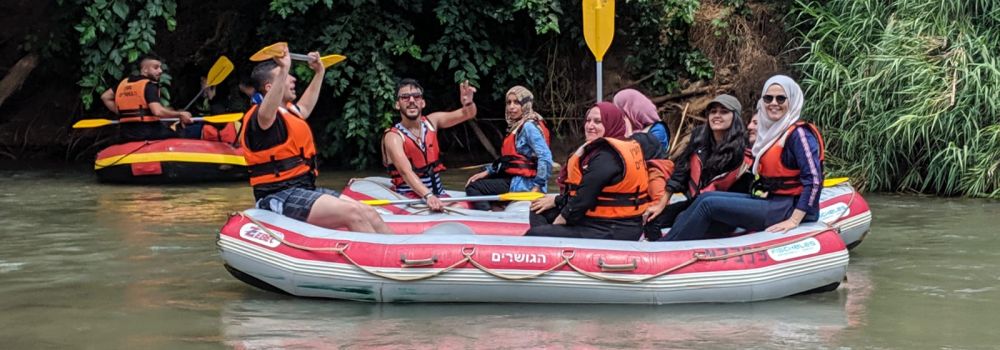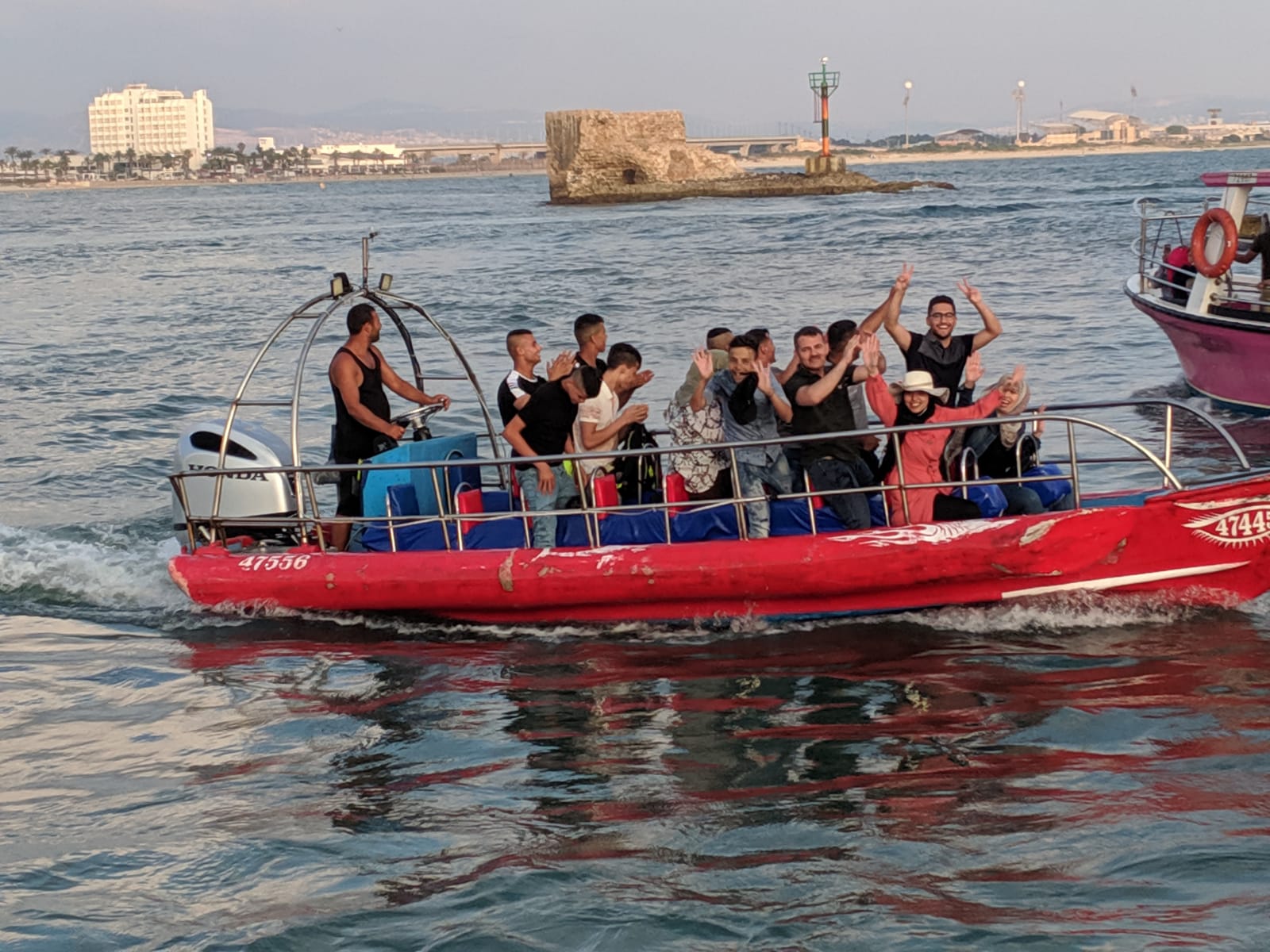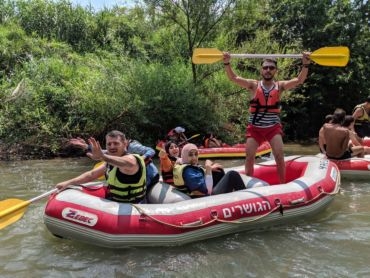Land Ahoy: Speed boats, Kareoke and Water Fights on the Lajee Staff Trip

After much delay from the original 5:30am set off time, on the excuse that we were running on Arabic time, the bags were packed, the coach was full of excited passengers and Arabic pop music was blasting out. It was the Lajee Center’s staff bi-annual trip, permits had been applied for weeks before, outfit change upon outfit change had been prepared for and all 20 of us were finally ready to go.
We first set off to Tal nature park, after a full minibus karaoke and dance off for the entire drive there, we pull up and are shuttled to the river where we are due to commence our first activity, rafting. Despite Israa insisting we didn’t need a safety brief we are eventually briefed, kitted out with oars and life jackets and after some tactical team adjustments we were loaded into our boats and ready to go. We hurtle downstream singing and splashing as we go; after 2 hours, one person overboard, three hostages, a million selfies and a lot of water thrown we arrive at the end. We make our way back to the bus, undergo the first outfit change of the day and have some time to dry off in the sun then we are ready to go again.
A couple of hours and a very sleepy bus later we pull into Akko old city; a beautiful historic town that was Palestinian until 1948 and has maintained its Arab Palestinian culture and population. Akko is a stunning city, made up of windy streets, a bustling bazaar and a hectic port, but for everyone there the speed boat ride by far outweighed seeing any of this. One time on the boat, doing hairpin turns, blasting music and getting completely soaked wasn’t enough and four times later the screams were just as loud and everyone came off drenched and beaming. If you only get to see the sea once or twice a year it makes sense to make the most of it!
This was a really great day for everyone involved, however even with all the fun had it was still governed by the realities of living under occupation. In order to enter Akko, the ancient Arab city which is now in the green lines drawn up in 1949 of the state of Israel permits had to be applied for 15 days before.
This process of applying for permits may seem similar to that which any tourist has to undergo when travelling to a different country, however there are some key distinctions. First of all, Israeli citizens who wish to visit Palestine do not have to obtain any sort of permit and can travel freely as they wish, whereas a Palestinian permit has to be applied for fifteen days before. Whilst Israel can control their borders and decide whether or not to permit entry, Palestine does not have the same sovereignty and is subject to a double standard.
The stark difference between Israel’s treatment of foreign tourists versus Palestinian citizens is clear through the permit process; upon arrival in Israel as a tourist you are immediately issued a visa which allows free travel throughout Israel and the occupied Palestinian territories. This is a free visa, which you are given immediately on arrival and allows you three months of travel time. Whereas for the Lajee Staff in order to apply for a permit there was a 60 Shekel fee, a 15 day waiting time, and a strict curfew; leave at 8:00 and return by 22:00.
This may not seem like a big deal, what’s a couple of weeks and a small fee in the grand scheme of things? However, it is part of a consistent program pursued by Israeli to treat Palestinians as inferior and to re-assert Israeli power and control. This is epitomized through the process at the checkpoint: all the staff have to get off the bus, que up at the busy and frequently understaffed checkpoint and have their permits scrutinized as if they were criminals getting on day release.
We had a lovely day out but checkpoints and permits are just one of the many realities of living under Israeli occupation.



